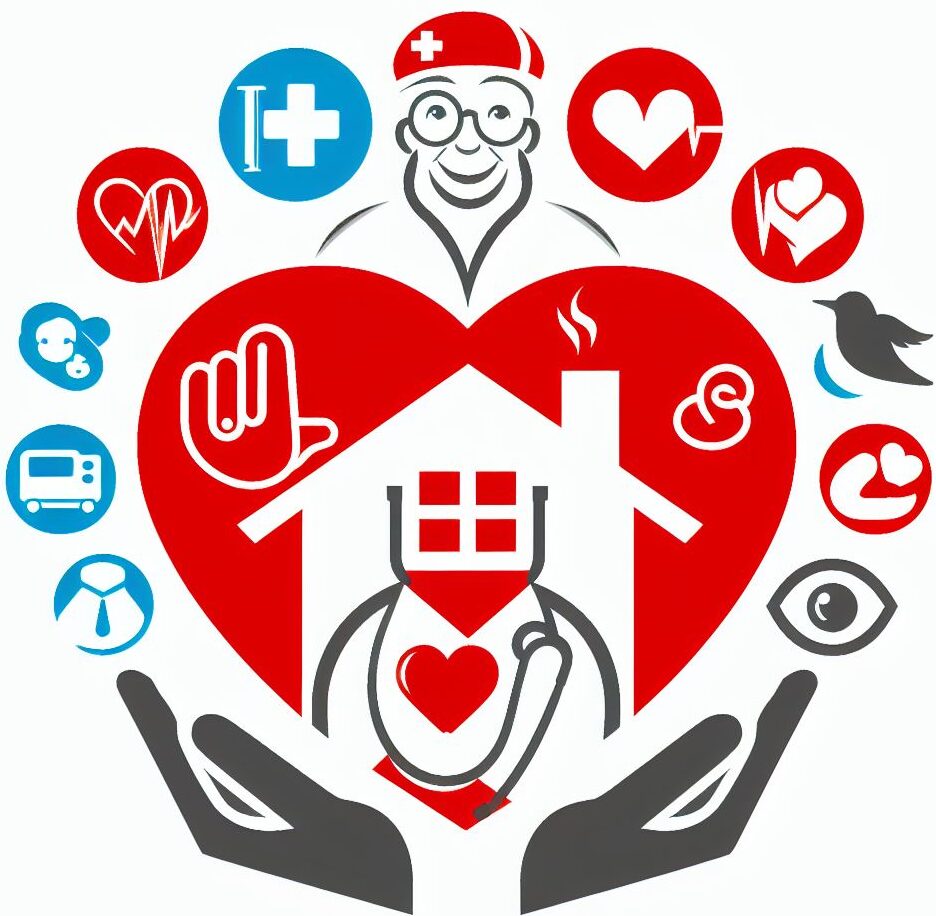Home health care for the elderly is a beacon of hope where these individuals are rapidly increasing. It offers a blend of medical care in the confines of home.
In an era where the global population of the elderly is rapidly increasing, the demand for quality care that respects the autonomy and dignity of this demographic is more pronounced than ever.
This article explains the nuances of home health care, exploring its definition, benefits, considerations for choosing a provider, and the challenges faced, alongside potential solutions.

Understanding Home Health Care for the Elderly
Definition and Purpose of Home Health Care Services: Home health care services are designed to offer medical, therapeutic, and personal care assistance to individuals in their homes.
This form of care is particularly tailored for those who:
- Are aging.
- Have disabilities.
- Are recovering from hospital stays.
- Or need specific medical treatments without the need to stay in a hospital or nursing home.
The purpose is to make health care accessible in the most comfortable and familiar setting. This ensures the patient’s needs are met while promoting independence and maintaining quality of life.
Emphasizing the Dignity and Independence: Moreover, home health care places a strong emphasis on respecting the personal dignity and independence of the elderly.
Therefore, it supports the individual’s desire to live independently for as long as possible at home.
In addition, it acknowledges the importance of personal choice and control over one’s living environment and care. This is crucial for the mental and emotional well-being of many elderly.
Identifying When Home Health Care is Appropriate: It’s essential to recognize the right time to seek home health care. It is suitable for individuals who require regular medical care or assistance with daily activities but do not need intensive, round-the-clock supervision.
Situations may include:
- Recovery from surgery or illness.
- Also, management of chronic diseases.
- Assistance with medications.
- Or need for physical therapy.
Overall, the goal is to provide the necessary support in a familiar setting.
Range of Services Offered in Home Health Care: The services encompass a broad spectrum.
These include skilled nursing care, physical and occupational therapy, speech-language pathology services, medical social services, and assistance with daily living activities such as bathing, dressing, and meal preparation.
Additionally, home health care can include wound care, patient and caregiver education, monitoring serious illness and unstable health status, and even end-of-life care.
Evaluating the Benefits of Home Health Care Services
Personalized Care Tailored to Individual Needs: The care plans in home health care are highly personalized. Basically, they take into account the specific medical conditions, personal preferences, and lifestyle of the elderly.
This individualized approach ensures that each patient receives the most appropriate and effective care, enhancing the overall outcome and satisfaction with the services provided.
Impact on Promoting Mental and Emotional Well-Being: Additionally, the familiar environment of one’s home significantly contributes to the mental and emotional health of the elderly.
Feelings of isolation, depression, and anxiety are often associated with aging and recovery processes. Hence, maintaining a sense of normalcy, routine, and proximity to loved ones can help mitigate these feelings.
Facilitation of Daily Living Activities and Medical Management: Moreover, home health care assists with daily living activities (ADLs).
This ensures the elderly can maintain their independence as much as possible. For instance, this includes help with mobility, personal care, and household tasks.
Additionally, home health care professionals play a crucial role in medication management. Ensuring that the elderly take their prescribed medications correctly is vital for managing chronic conditions and preventing complications.
Benefits for Family Members and Caregivers: The support provided by home health care services extends to family members and caregivers. As such, it reduces the physical and emotional strain associated with caregiving.
It offers them peace of mind knowing that their loved one is receiving professional care. Also, it provides them with the opportunity to take breaks. This is critical as it reduces caregiver burnout and enables them to fulfill other responsibilities.

Choosing the Right Home Health Care Provider
Importance of Expertise and Qualified Professionals: Most importantly, ensuring that the home health care provider employs qualified and experienced professionals is critical.
This includes licensed nurses, therapists, and aides who are skilled in delivering the specific types of care needed by the elderly. The provider should have a robust process for vetting and continuously training their staff to maintain high standards of care.
Assessing Provider Credentials and Trustworthiness: It’s important to verify the credentials of a home health care agency, including accreditation by recognized health organizations and compliance with state and federal regulations.
Checking references and reviews can also provide insights into the provider’s reliability and quality of care.
How to Involve Elders in the Decision-Making Process: Another consideration is involving the elderly in choosing their home health care provider. This empowers them and respects their autonomy.
Discussions should focus on their preferences, concerns, and needs. It’s important to listen actively and consider their input in the final decision, ensuring they feel valued and respected.
Questions to Ask Potential Home Health Care Providers: When evaluating potential providers, ask about the following:
- Their experience with specific health conditions.
- Also, the availability of services.
- Emergency procedures.
- And how they develop and monitor care plans.
Furthermore, inquire about the process for changing or updating care plans as needs evolve. Additionally, understanding how the agency handles issues of privacy, security, and communication between caregivers and the family is important.

Navigating the Challenges and Solutions in Home Health Care
Dealing with the Cost of Home Health Care: The cost of home health care can be a significant concern for many families. Exploring insurance options, including Medicare and Medicaid, private health insurance, and long-term care insurance, can help offset some expenses.
Additionally, some community organizations and nonprofits offer financial assistance or subsidized services for eligible individuals.
Addressing Common Concerns of the Elderly About Home Health Care: It’s common for the elderly to have reservations about receiving care at home. They fear loss of independence or becoming a burden.
Addressing these concerns involves clear communication about the benefits of home health care. Be sure to include maintaining independence and receiving personalized care. Reassuring them of their involvement in care decisions and the flexibility of services can alleviate anxieties.
Technological Advancements Supporting Home Health Care: Advances in technology, such as telehealth, wearable health monitors, and emergency alert systems, are enhancing the efficacy and safety of home health care.
These technologies enable remote monitoring, improve communication between patients and providers, and offer immediate assistance when needed. Ultimately, this supports the elderly in staying safely at home.
Community Resources and Support Networks: Finally, leveraging community resources and support networks can greatly enhance the home health care experience. This includes adult day care services, senior centers, support groups for specific conditions, and volunteer services.
These resources provide additional social interactions, emotional support, and practical assistance, enriching the overall care plan for the elderly.
Conclusion | Home Health Care for the Elderly
Home health care for the elderly represents a shift in how society cares for its aging population. It offers a compassionate alternative to institutional care that honors the dignity, independence, and personal preferences of the elderly.
Families can ensure that their loved ones receive the best possible care in the comfort of their homes by:
- Understanding the spectrum of services offered.
- Evaluating the benefits.
- Choosing the right provider.
- And navigating inherent challenges with innovative solutions.
As we move forward, it’s imperative that we continue to advocate for and support the development of home health care services. We must recognize them as an essential component of comprehensive elderly care.
I hope you found “Home Health Care Services for the Elderly” informative and helpful. Please feel free to share your thoughts, questions, or comments below. I’d love to hear from you and will be happy to respond.
Veron | Entrepreneur | The Way 4WordEnterprises

What an insightful post! It’s clear how vital home health care is for our elderly population, ensuring they receive personalized and compassionate support while maintaining their independence. One question that comes to mind is: How can families best prepare for the financial aspects of home health care, considering the various insurance options and potential assistance available? It seems like understanding the cost and exploring available resources would be crucial steps in ensuring quality care for our loved ones.
Hi Hanna:
Thank you so much for your kind words and for bringing up an essential aspect of home health care—the financial preparation. You’re absolutely right; understanding the costs involved and exploring available resources are critical steps in ensuring that our loved ones receive the quality care they deserve without placing undue financial strain on the family.
Here are a few steps families can take to prepare:
Assessment of Needs, Understanding Insurance Coverage, Exploring Assistance Programs, Considering Out-of-Pocket Costs, Professional Financial Advice, Exploring Community Resources, Continuous Planning
Again, thank you for your insightful comment.
Veron